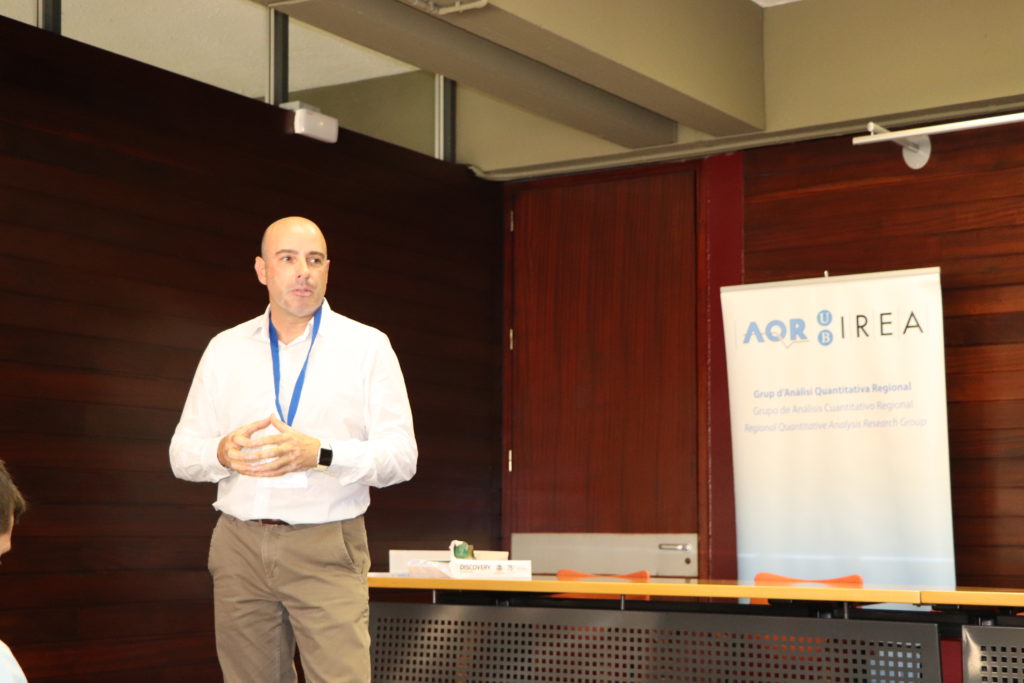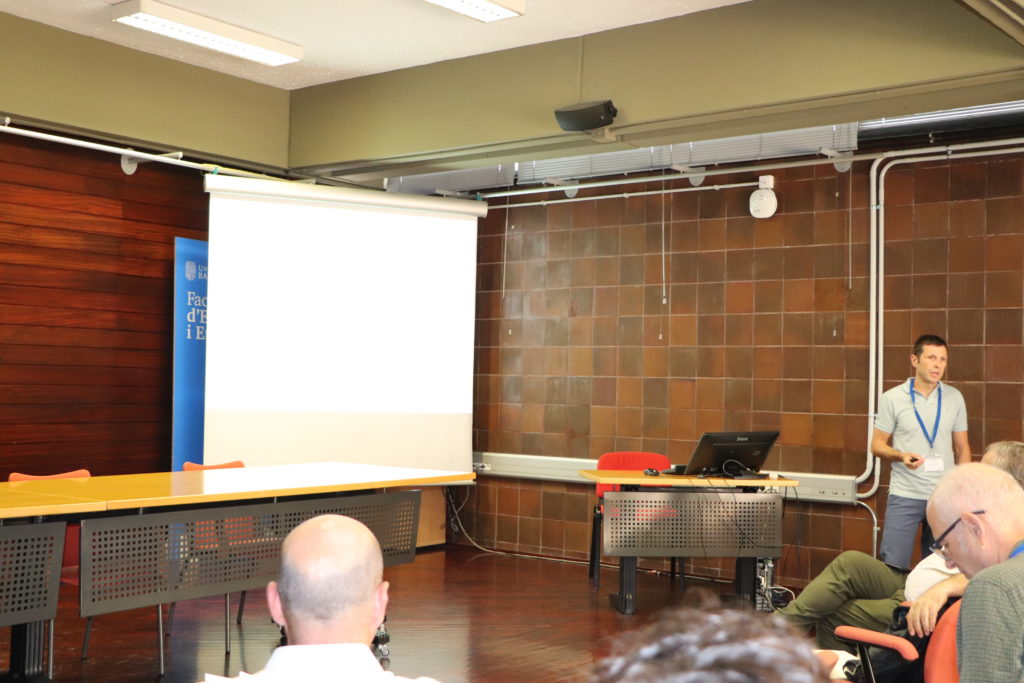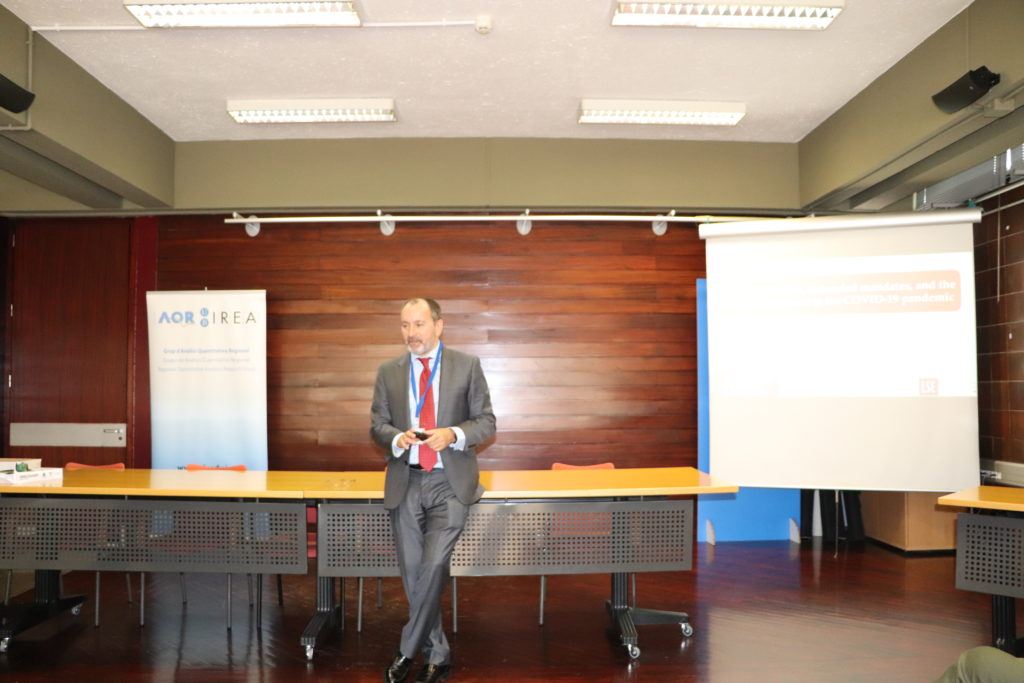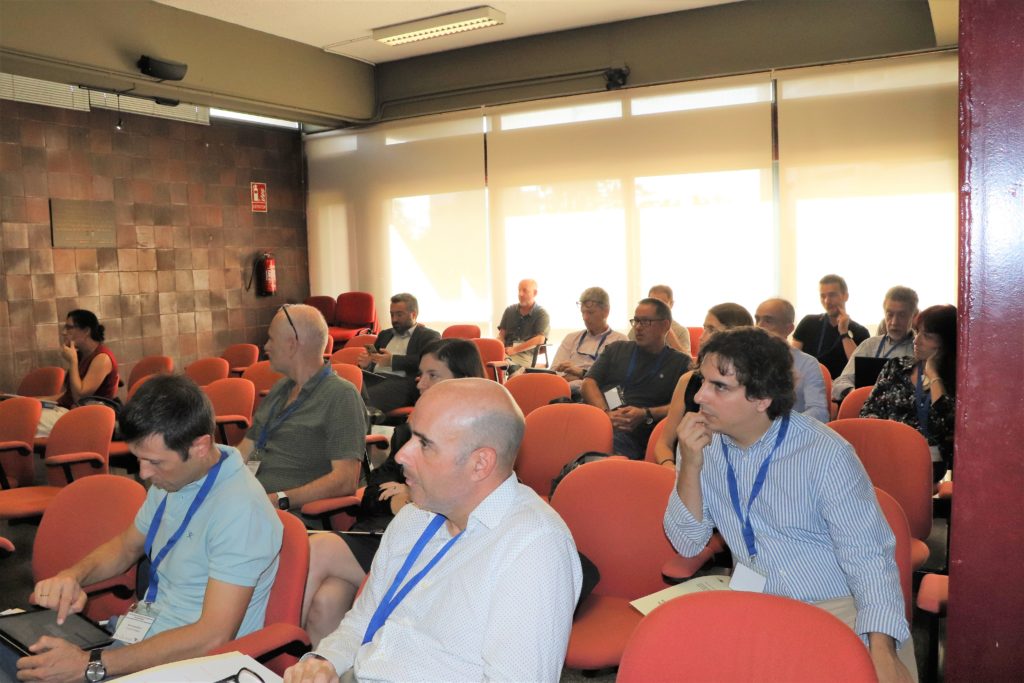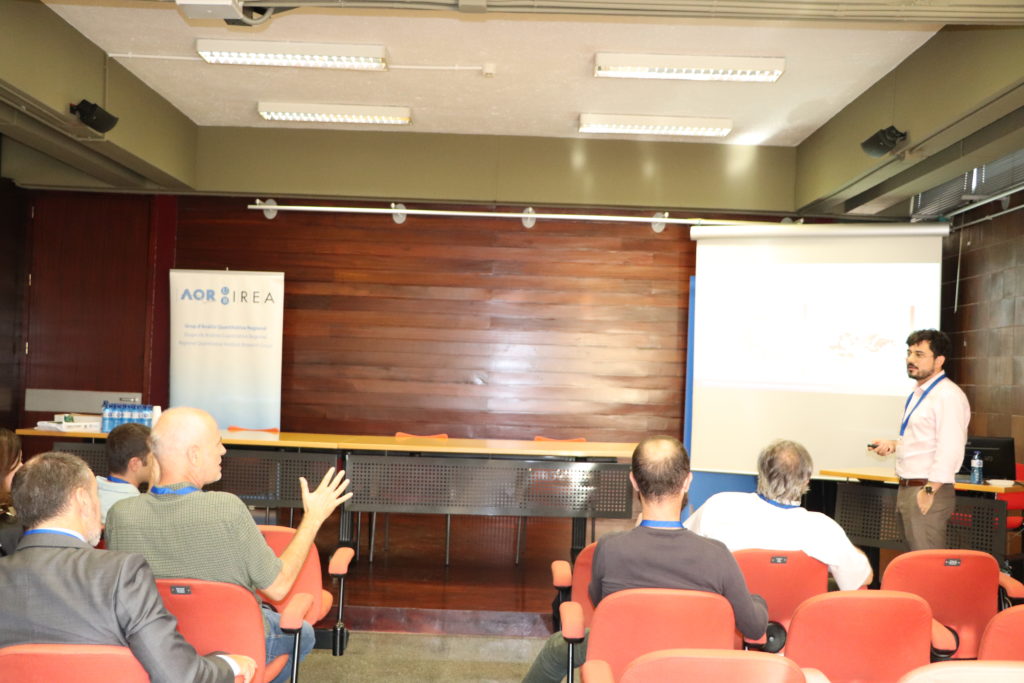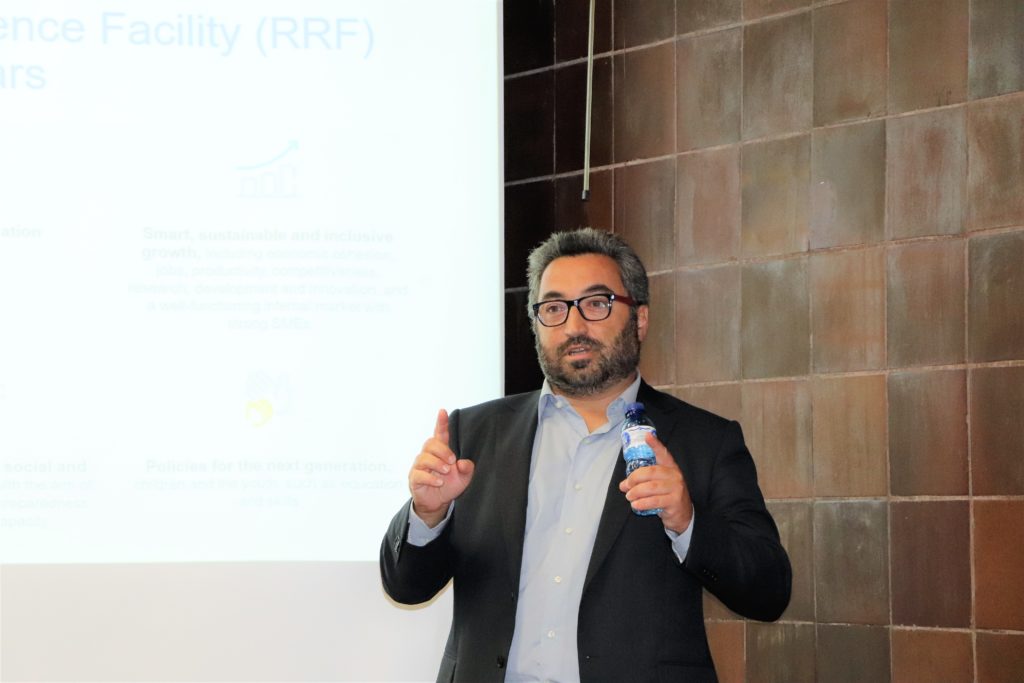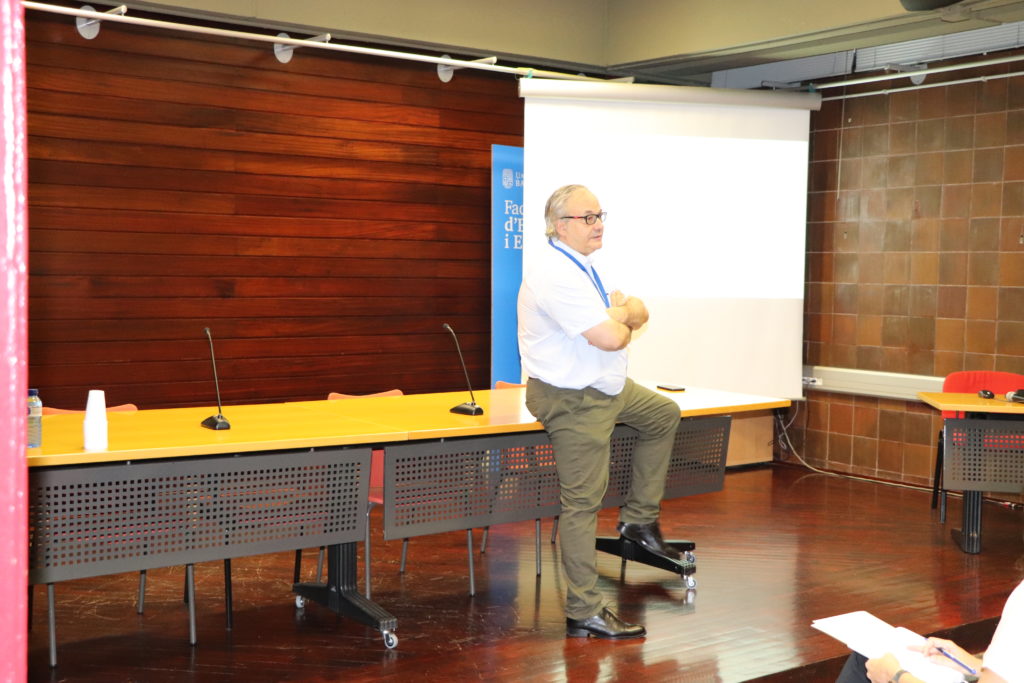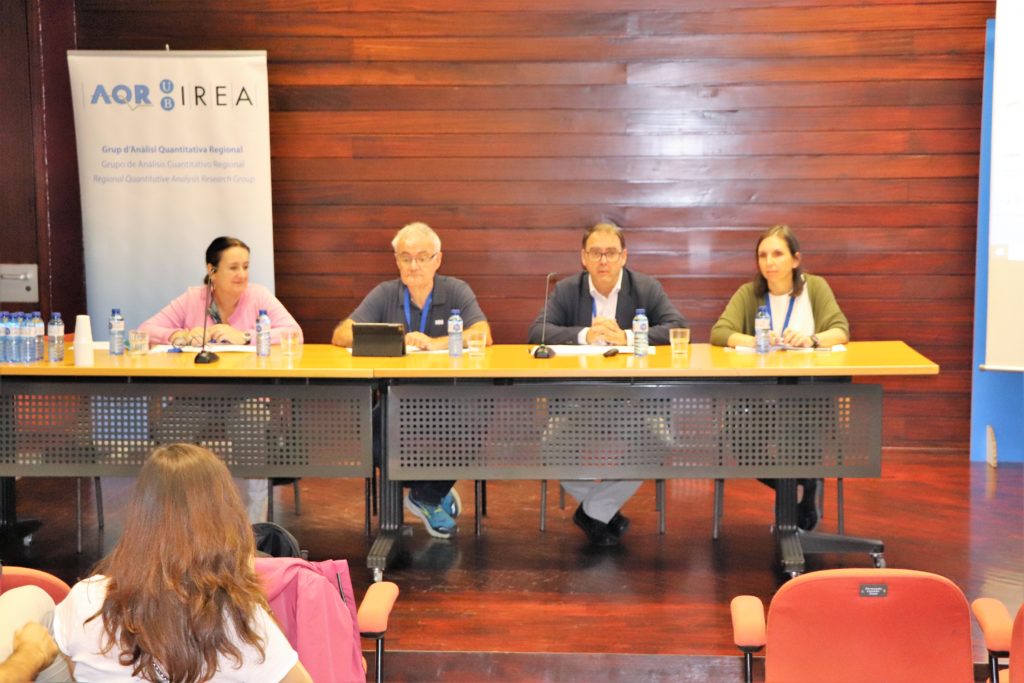On October 6th and 7th 2022, AQR-IREA hosted the 2022 Barcelona Workshop on Regional and Urban Economics, which was held in the Faculty of Economics and Business of the University of Barcelona.
On this occasion, under the title “The Economics of a Pandemic. Lessons from COVID-19”, the workshop hosted presentations related to the effect of socio-economic factors on the incidence of the pandemic in different territories and its impact on national and local economies, as well as the reaction of these economies to the policies designed to minimize the effects of the pandemic and overcome the crisis.
The workshop, an only in-person event, was organized around three contributed sessions and a round table. In the first session, Marcos Sanso and Andrés Rodríguez-Pose, professors from the University of Zaragoza and the London School of Economics, respectively, presented their contributions. Under the title «Modelling the spread of COVID-19 in New York City», Prof. Marcos Sanso identified those characteristics of the populations of the New York City’s districts that allow to better predict the number of COVID-19 cases. The presentation by Prof. Andrés Rodríguez Pose, entitled «Decentralisation, unfunded mandates, and the regional response to the COVID-19 pandemic», showed how the differences in excess mortality related to the COVID-19 between regions of a large number of countries positively correlate with the divergence between competences of the regional and local administrations (particularly those in the health sector) and the financial resources they had to provide the associated services.
The second session also had two presentations. In the first one, Marcos Díaz presented the main results and conclusions of the study “The geography of housing demand in the wake of COVID-19”, conducted together with other researchers of the OECD Center for Entrepreneurship, SMEs, Regions and Cities. There was a discussion about, among other issues, the effect of the pandemic on the evolution of housing prices in suburban areas in relation to those in the city centres. For his part, Andrea Conte, from the Joint Research Centre of the European Commission, presented the essential elements of the territorial distribution of the European funds assigned to help the recovery of post-pandemic economies, and the challenge posed by the evaluation of its impact and the coordination problems with other European development policies.
Finally, the third session hosted the presentation «Post-pandemic employment outlook: Old structural trends and new shocks», by Juan F. Jimeno (Bank of Spain). After reviewing the reaction of the Spanish labour market during the acute phase of the pandemic and the return to a certain normality, the speaker showed evidence about the effect of the COVID-induced economic crisis on digitalization and automation, and how wages and employment have responded to these processes in different types of occupations, depending on the level of skill required.
The round table was participated by three managers of regional and local institutions. In the first place, Marta Curto, from the Departament d’Economia i Hisenda of the Generalitat de Catalunya, and Paco Ramos, Executive Director of Employment Promotion Strategies in Barcelona Activa, summarized the actions carried out by their respective institutions to deal with the economic crisis caused by the pandemic and commented specific aspects of the EU Recovery and Resilience Facility relevant to their areas. Anna García-Altés, as head of the Mapa Sanitari, Sociosanitari, de Salut Pública i Investigació of the Departament de Salut of the Generalitat de Catalunya, focused on the efforts made to deal with the health crisis in Catalonia and on the sequels that this has left in the physical and mental health of the population. Finally, there was a debate between the panelists and the audience about, among other issues, the coordination between institutions at times of emergency, the difficulties in the management and allocation of European funds, the limitations of ex-ante evaluation of the efficiency of financed projects, and the current situation of the public health system.
The 2022 Barcelona Workshop on Regional and Urban Economics: “The Economics of a Pandemic. Lessons from COVID-19”, has been the final event of the research project “The propagation of COVID-19 and its effects on the Spanish economy. A regional analysis”, funded by the Pandèmies call of the Generalitat de Catalunya (2020PANDE00060). The project is led by Josep Lluís Carrion-Silvestre and conducted by a team of eleven researchers, most of whom are members of AQR. It has analysed the evolution of the COVID-19 pandemic in various territories and has related it to some of their most relevant socioeconomic characteristics. Also, it has studied the impact on regional and local economies, paying special attention to specific sectors such as, for example, tourism, and has explored the effects of non-pharmaceutical measures (lockdown, remote working, etc.) on various fields such as work and employment. The interaction of project members with guest speakers and political managers participating in the workshop has enriched and complemented the analyses carried out within the framework of the project.
